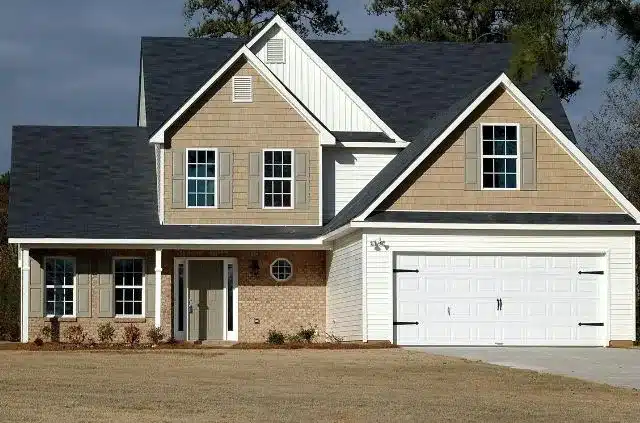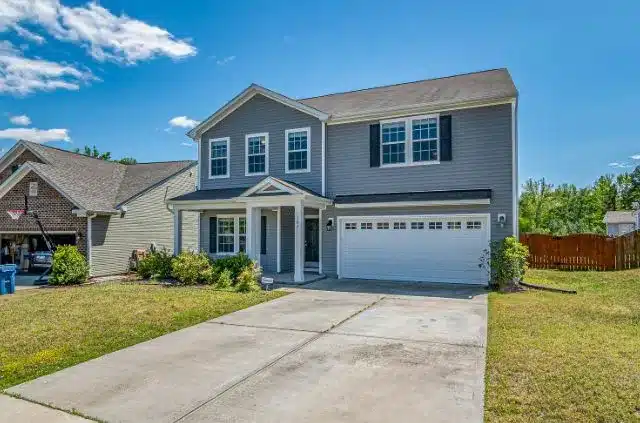Entering the real estate market as a first-time homebuyer can feel overwhelming. However, it is essential to grasp the current dynamics, especially considering that first-time buyers constitute about half of the overall home purchases, as reported by Zillow in 2023. This significant percentage indicates not only a demand for homes but also the increased competition you may face in your hunt for the perfect property.
Understanding market trends will help you make informed decisions. As a first-time buyer, being aware of these figures can guide you in setting realistic expectations and timelines. Ensure that you stay updated on local housing trends, as they may vary dramatically from national statistics.
Once you familiarize yourself with the market landscape, you can tailor your home search strategy accordingly. This may include deciding on the type of home, ideal location, and budget allocation. With diligence and research, you can navigate this rapidly evolving sector with confidence.
Also Read: Should You Become a Real Estate Agent
Budgeting for Homeownership
Establishing a budget is a critical step for any prospective homeowner. Potential buyers should account for various costs beyond just the property price, such as closing costs, property taxes, and necessary renovations. Research suggests preparing for additional expenses such as routine maintenance and potential repairs that can arise with homeownership.
Interestingly, certain major appliances, like furnaces, have a limited lifespan—typically ranging from 15 to 20 years as noted by Forbes. It’s critical to factor such possible replacements into your financial planning. This foresight can ensure that you are not caught off guard by unexpected expenditures during your new homeownership journey.
It is wise to engage with a financial advisor who can help you assess your situation more thoroughly. They can provide personalized guidance on budgeting strategies and mortgage options. This advice can be invaluable, particularly for first-time buyers who may have limited experience navigating these financial waters.
Inspecting the Home
Before finalizing any purchase, conducting a home inspection is essential. A thorough examination can reveal critical issues that could lead to significant expenses down the line. Failing to uncover these problems beforehand could mean spending more than you bargained for in repairs or upgrades.
One critical aspect to check during the inspection is the kitchen ventilation. The International Residential Code and the U.S. Environmental Protection Agency emphasize the importance of installing a vent hood to effectively capture cooking fumes and expel them outdoors, as detailed by This Old House. Ensuring a proper ventilation system not only enhances indoor air quality but may also prevent potential health hazards.
Skimping on an inspection is a risk that could cost you more in the future. Always approach the inspection with a comprehensive checklist to ensure no area is ignored. This proactive approach can save you from a host of headaches later on.
Understanding Maintenance Responsibilities
Owning a home comes with both pleasures and responsibilities, particularly regarding maintenance. It’s important to recognize that homeownership requires ongoing attention to various systems and features, from landscaping to HVAC upkeep. Allocating time and resources to maintain your home can enhance its longevity and preserve its value.
Given the historically reliable lifespan of home systems, such as furnaces, you should be prepared to budget for replacement or maintenance. Remember, a furnace typically lasts between 15 to 20 years, according to information provided by industry experts like Forbes. Staying ahead of these timelines can help mitigate costs and ensure your home remains comfortable and energy-efficient.
Additionally, creating a seasonal maintenance checklist can help you stay organized. This list can include tasks such as changing air filters, cleaning gutters, and checking smoke detectors. Taking a proactive stance on maintenance can prevent minor issues from escalating into more significant problems.
Evaluating Your Needs
Reflecting on your lifestyle and long-term goals is crucial when choosing a home. Are you considering future family plans or career changes that might affect your location? The home you buy today should align with your future, not just your current situation.
Make a list of must-have features in your new home. Consider factors such as the number of bedrooms, proximity to schools, and access to public transportation. This list will help you stay focused during your home search and avoid getting sidetracked by properties that don’t meet your essential criteria.
Moreover, don’t forget to take into account the community and neighborhood you wish to inhabit. Research local amenities, safety ratings, and community culture. A home is more than just the physical structure; it’s about the lifestyle you will cultivate around it.



